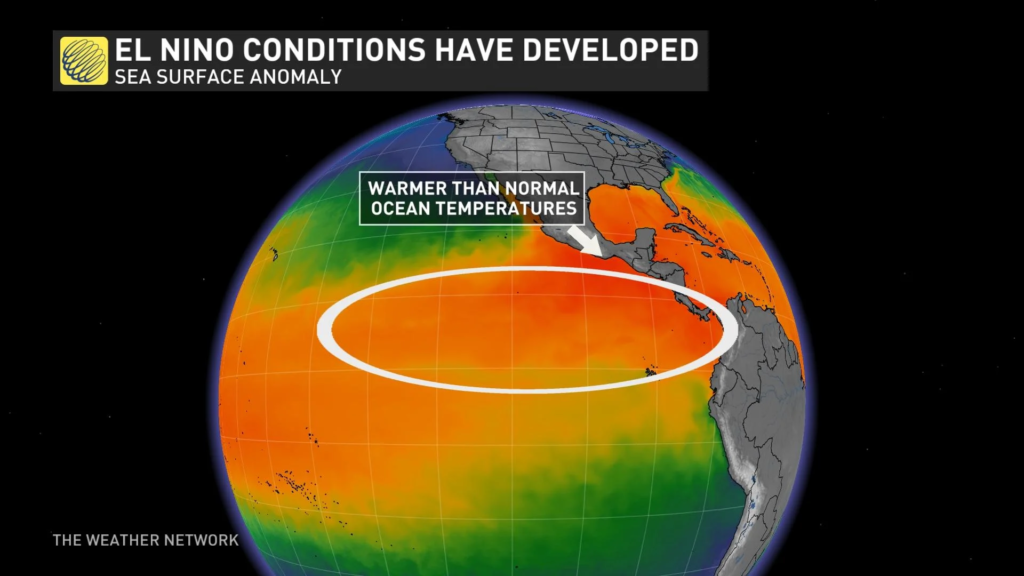
El Niño has arrived, and indications suggest that it will intensify in the upcoming weeks and months, leading to significant impacts on weather patterns worldwide.
During the summer, hot temperatures are commonly experienced in Southern Canada. However, when the heat breaks records in the Far North, it becomes a topic of conversation.
On Tuesday, July 4, an extraordinary occurrence took place in Canada, with multiple global heat waves contributing to the latest record. Surprisingly, regions that were not typically associated with scorching temperatures became the country’s hotspots, surpassing previous records.
On Monday, the global average temperature reached a significant milestone of 17.01°C, marking it as the hottest recorded day worldwide. This unprecedented achievement had never been witnessed before in history. However, the record-breaking moment was short-lived, as the very next day, Tuesday, the global average temperature surged even higher. Reaching an average of 17.18°C, it raised the bar of heat even further.
According to forecasters, there is an 84 percent likelihood that this phenomenon will develop into at least a moderate El Niño or even stronger. Additionally, the chances are greater than 50 percent that a strong El Niño will form during the fall or winter months.
Temperature in the 30s, along with humidex values nearing the 40s, will gradually move eastward across Ontario and Quebec, eventually reaching Atlantic Canada later this week. Furthermore, Southern British Columbia will experience temperatures in the 30s by Friday, which is five to ten degrees higher than the usual norms for this time.

While hot temperatures are typically expected in Southern Canada during the summer, the breaking of heat records in the Far North becomes a noteworthy topic of conversation.
The latest record-breaking event on Tuesday, July 4, was a result of several global heat waves, including a remarkable accomplishment in Canada. Surprisingly, regions that are not commonly associated with extreme heat soared to become the country’s hotspots, surpassing all-time temperature records.
To witness these extraordinary records, one must venture north, far north, near the Arctic Ocean in northern Quebec. The temperature in Kuujjuarapik reached a scorching 34.7°C, surpassing all other Canadian communities. Additionally, not too far away, Kuujjuaq shattered its 76-year-old all-time heat record by a staggering margin of more than eight degrees.



